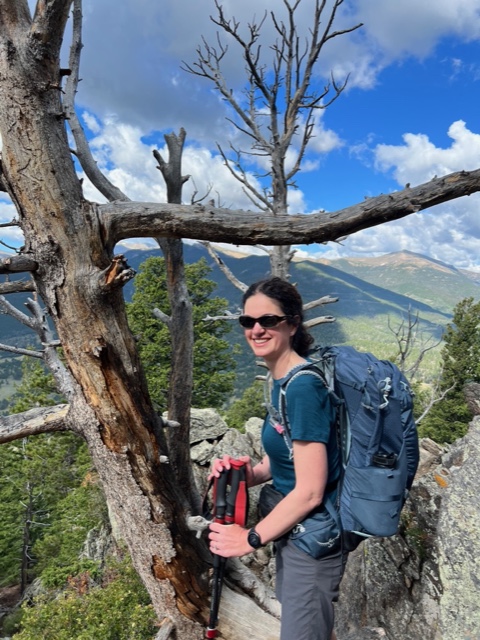Discovery Profile: Robert Screaton, PhD
MitoCanada partners with MITO2i to fund mitochondrial research that could introduce new therapies for breast cancer
Breast cancer is the number one cancer killer of women.
Improving survival and quality of life for patients with breast cancer is essential. We are however, limited by our ability to offer personalized therapies that reduce the risk of treatment-resistance and disease recurrence while minimizing the risks of toxicity associated with ineffective chemotherapeutic agents.
Therapy for patients with locally advanced breast cancer typically involves treatment with chemotherapy prior to surgery. Selecting the appropriate therapy often involves significant trial-and-error. Most patients receive a standard cocktail of drugs, but only about one-third have a positive and complete response. This highlights the need for personalized treatment.
Dr. Screaton and his team propose to identify genes in the mitochondria of cancer cells that maycontribute to their growth, survival and ability to develop resistance to chemotherapy.
It is known that cancer cells can use nutrients differently than normal cells. This raises the possibility of new strategies to kill them. These are called ‘mitochondrial metabolism vulnerabilities’.
This novel approach will be able to silence mitochondrial genes in locally advanced breast cancer cells taken directly from patients to identify tumour-specific vulnerabilities. These vulnerabilities can then be targeted alone, or in conjunction with lower doses of established therapies, to kill tumours more effectively and reduce side effects.
An exciting outcome of this work is the development of patient-specific therapies based on the patient’s tumour’s demonstrated drug sensitivities.
Robert Screaton, PhD | Senior Scientist at Sunnybrook Research Institute





 The sisters and their family had never even heard of mitochondrial disease (mito) — and neither had many of the health care practitioners in their hometown of Newfoundland and Labrador, which contributed to the long path to diagnosis.
The sisters and their family had never even heard of mitochondrial disease (mito) — and neither had many of the health care practitioners in their hometown of Newfoundland and Labrador, which contributed to the long path to diagnosis. While Jodi, Erika and their mother, Brenda, all have MELAS, the three of them are affected in different ways.
While Jodi, Erika and their mother, Brenda, all have MELAS, the three of them are affected in different ways. Despite — or perhaps because of — these challenges, the Young family has developed a rare closeness. “My sister, mom, dad, and I will always have an unspoken bond that comes with experiencing mito,” says Erika. “Mito has definitely brought us all closer together,” agrees Jodi. “Dealing with mito can be extremely isolating, especially here in Newfoundland where there are few resources for anything, let alone a rare disease. This forced us to be closer, because we only had each other.”
Despite — or perhaps because of — these challenges, the Young family has developed a rare closeness. “My sister, mom, dad, and I will always have an unspoken bond that comes with experiencing mito,” says Erika. “Mito has definitely brought us all closer together,” agrees Jodi. “Dealing with mito can be extremely isolating, especially here in Newfoundland where there are few resources for anything, let alone a rare disease. This forced us to be closer, because we only had each other.” As they build their own rich lives as young adults — Jodi is a mitoScholar who’s passionate about entomology(the study of insects) and who’s currently pursuing a PhD in plant-pollinator interactions, and a huge animal lover who finds joy in spending time with her partner and her pets (a dog, birds, sugar gliders, and a snake), while Erika is a soil researcher who loves travelling and partaking in outdoor activities with her spouse and her Australian Shepherd — the sisters remain ever-committed to their parents. “While I no longer live at home, I see my parents almost every day,” says Erika. “The negative consequences of MELAS are ever-present even though I live a full life and am not actively experiencing symptoms of the disease.”
As they build their own rich lives as young adults — Jodi is a mitoScholar who’s passionate about entomology(the study of insects) and who’s currently pursuing a PhD in plant-pollinator interactions, and a huge animal lover who finds joy in spending time with her partner and her pets (a dog, birds, sugar gliders, and a snake), while Erika is a soil researcher who loves travelling and partaking in outdoor activities with her spouse and her Australian Shepherd — the sisters remain ever-committed to their parents. “While I no longer live at home, I see my parents almost every day,” says Erika. “The negative consequences of MELAS are ever-present even though I live a full life and am not actively experiencing symptoms of the disease.”





 On January 1st, Genevieve saw a New Year, and a few days later, she went on her first plane ride to Florida! There, we began to experience bottle refusal and some other signs that were concerning, such as vomiting and her overall muscle tone becoming weaker.
On January 1st, Genevieve saw a New Year, and a few days later, she went on her first plane ride to Florida! There, we began to experience bottle refusal and some other signs that were concerning, such as vomiting and her overall muscle tone becoming weaker.



